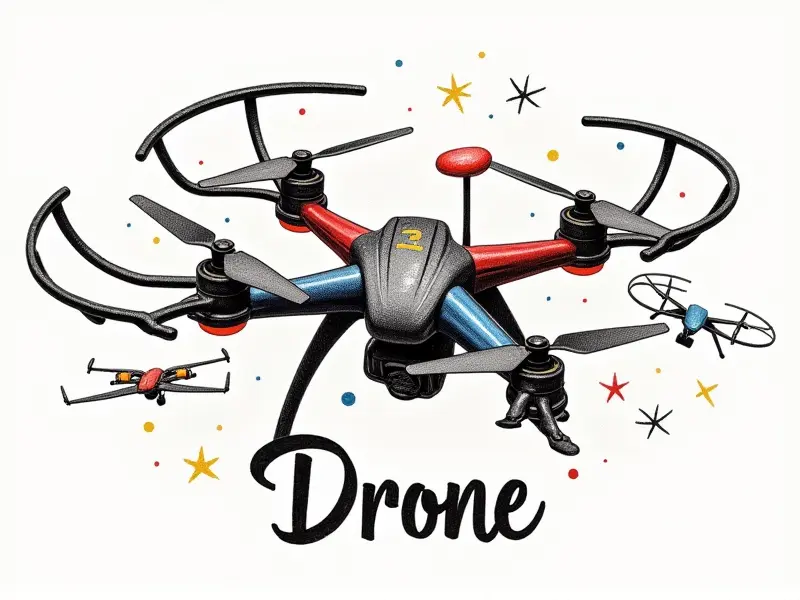Is drone insurance necessary?

Why Drone Insurance Is A Must-Have
Drone insurance is an essential investment for any drone operator, whether you are a hobbyist or a professional in the industry. The risks associated with operating drones can be significant and multifaceted, ranging from physical damage to liability issues. Understanding why drone insurance is necessary helps ensure that your investments and activities remain protected.
Protect Your Drone: Get Insurance Now!
The moment you purchase a high-end quadcopter or any other type of unmanned aerial vehicle (UAV), it’s crucial to safeguard this valuable asset with the right insurance coverage. Accidents can happen anytime, and without proper protection, the financial burden could be overwhelming.
Should You Insure Your RC Quadcopter?
For enthusiasts who use remote-controlled quadcopters for recreational purposes, insurance might seem like an unnecessary expense. However, consider the potential risks involved: accidental damage, theft, or liability issues arising from third-party property damage.
Risk Factors
- Damages: Accidents can lead to costly repairs or replacements.
- Theft: Drones are prime targets for theft due to their high value and small size, making them easy to conceal.
- Liability: In case of an incident causing harm to people or property, you could face legal consequences.
The Benefits of Drone Insurance Explained
Drone insurance offers numerous advantages that go beyond just protecting your equipment. Here are some key benefits:
Financial Protection
- Repair and Replacement Costs: Coverage for repairs or replacement if your drone is damaged.
- Liability Protection: Compensation for third-party claims, including bodily injury and property damage.
Peace of Mind
- Confidence in Operation: Knowing you are covered allows you to operate your drone with confidence.
- No Financial Stress: In the event of an accident, insurance can mitigate financial stress and uncertainty.
Avoid Regret: Buy Drone Insurance Today
The decision to purchase drone insurance should not be delayed. The risks associated with operating drones are too significant to overlook. By securing coverage now, you can avoid the regret of being unprepared when an incident occurs.
Immediate Benefits
- Prompt Coverage: Immediate protection from day one of your policy.
- No Wait Periods: No need to wait for coverage to take effect, ensuring instant peace of mind.
Safeguard Your Investment with Drone Coverage
Your drone is likely a significant investment. Protecting it with comprehensive insurance safeguards your financial interest and ensures that you can continue enjoying the benefits of your UAV without worrying about unexpected costs.
Types of Coverage Available
- Bodily Injury Liability: Covers medical expenses for third parties injured due to your drone operation.
- Property Damage Liability: Provides coverage for damages caused to property by your drone.
- Limited Physical Damage: Offers limited protection against accidental damage, theft, and vandalism.
Why Every Pilot Needs Drone Insurance
No matter the experience level or purpose of your drone operation, insurance is a vital component in risk management. Whether you are a hobbyist flying for fun or a professional conducting aerial photography and videography services, having the right coverage ensures that you can continue to operate with confidence.
Professional Pilots
- Commercial Operations: Insurance is often required by clients and regulatory bodies for commercial drone use.
- Liability Protection: Essential to protect your business from lawsuits arising from accidents during operations.
Is Drone Insurance Really Necessary?
The short answer is yes, especially if you value the security and peace of mind that come with comprehensive coverage. While it may seem like an additional expense at first glance, the long-term benefits far outweigh any initial costs. Protecting your investment and ensuring compliance with regulations are two critical reasons to consider drone insurance.
Regulatory Compliance
- Federal Aviation Administration (FAA) Requirements: Many federal and local regulations mandate liability coverage for commercial operations.
- Insurance as a Condition: Some clients or employers will require proof of insurance before allowing you to operate their equipment.
Stay Safe with Drone Insurance Coverage
In addition to financial protection, drone insurance also plays a crucial role in ensuring the safety of your operations. By adhering to best practices and maintaining adequate coverage, you minimize risks and contribute to safer skies for everyone involved.
Safety Enhancements
- Training Programs: Many insurance providers offer training programs to enhance pilot skills and reduce accidents.
- Risk Assessments: Insurance companies can provide valuable insights into risk management strategies tailored to your specific needs.
Protect Your Investment: Get Drone Cover
Your drone is an investment that deserves the best protection available. By securing comprehensive insurance coverage, you safeguard not only your equipment but also your reputation and future opportunities in the drone industry.
Actionable Steps
- Research Providers: Compare different insurers to find one that offers the most suitable coverage for your needs.
- Contact Professionals: Reach out to insurance brokers specializing in UAVs for personalized advice and quotes.
Do You Need Drone Insurance?
The answer is unequivocally yes. Whether you are a hobbyist or a professional, the risks associated with drone operations necessitate adequate insurance coverage. Protecting your investment, ensuring compliance with regulations, and maintaining peace of mind are all compelling reasons to invest in drone insurance today.
Conclusion
In conclusion, drone insurance is not just an optional add-on but a critical component of responsible drone operation. It provides financial protection, regulatory compliance, and enhances overall safety for both the operator and the public. By securing your investment with comprehensive coverage, you can enjoy the benefits of drones without the stress of potential risks.

